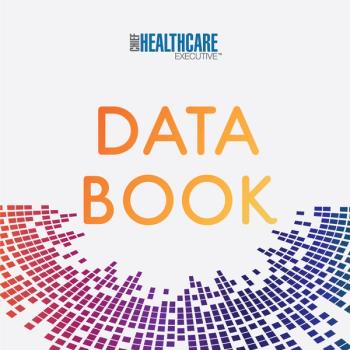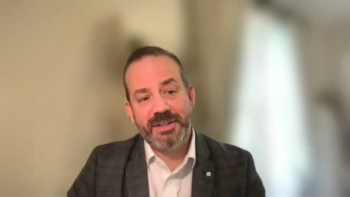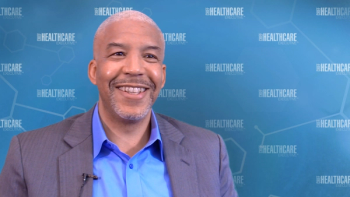
On Thursday, a global outage of Microsoft software affected some health systems in the United States, which announced they were canceling some procedures or only taking urgent care visits.

Laura is the vice president of content of Managed Healthcare Executive® (MHE) and all its brands, including Formulary Watch and Chief Healthcare Executive. She has been working on MHE since 2019 and has been with MHE's parent company, MJH Life Sciences®, since 2011. She has an MA in business and economic reporting from New York University.
You can reach her at [email protected] or you can connect with her on LinkedIn or Twitter.

On Thursday, a global outage of Microsoft software affected some health systems in the United States, which announced they were canceling some procedures or only taking urgent care visits.

On this week's episode of Data Book, Dedi Gilad, CEO and co-founder of TytoCare, discusses the evolving technology of a virtual visit, the current state of remote patient monitoring and more.

Gathering and having access to an enormous amount of data isn’t the most important thing; using that data at the time of need to influence care choices is crucial, said Jim Adams, chief innovation officer, AllianceRx Walgreens Prime.

On this week's episode of Data Book, Jesse Fasolo, director of technology, infrastructure, and cybersecurity at St. Joseph’s Health, discusses cybersecurity for hospitals and health systems, the biggest threats and points of vulnerability, how attackers are evolving, how to respond when there is a breach and more.

While telehealth is traditionally defined as between a patient and their provider, the use of telehealth to connect providers has been important, said Heather Bonome, PharmD, director, pharmacy URAC.

Using and analyzing data for some subpopulations is still in the early stages and there remain a lot of questions around what is the right data to collect, said George Van Antwerp, MBA, managing director, Deloitte Consulting.

On this week's episode of Data Book, Charlotte Lee, MBChB, of Big Health, a digital therapeutics company, discusses digital therapeutic options for anxiety and insomnia, the importance of improved access to mental health care, reducing perceived stigma for mental health care and more.

Panelists during a session at the Galien Week of Innovation discussed their technological innovations that allow for a health system with a more connected patient.

Information security is changing so fast, healthcare systems need to work on shorter strategies so they can pivot to what’s current, said Jesse Fasolo, PhD student, director, technology infrastructure & cybersecurity, information security officer, St. Joseph's Health.

The possibility of hospitals and health systems being hit by both COVID-19 and flu hospitalizations makes it crucial people get vaccinated against both, said Leslie Kantor, PhD, MPH, chair and professor of the Department of Urban-Global Public Health, Rutgers School of Public Health.

Patients expect more convenient communication options and user-friendly technology from healthcare providers now.

Telehealth isn't the only enduring technology that was implemented during the COVID-19 pandemic; artificial intelligence (AI) was being used more than ever across Moffitt Cancer Center, said Edmondo Robinson, MD, MBA, MS, FACP, senior vice president and chief digital officer at Moffitt Cancer Center.

Patients receiving care at Memorial Sloan Kettering preferred telemedicine visits over in-office visits with similar satisfaction scores.

Hospitals and health systems are largely not equipped to handle all the patient data they could receive and turn it into actionable information, explained Edmondo Robinson, MD, MBA, MS, FACP, senior vice president and chief digital officer at Moffitt Cancer Center.

Tomer Shussman and Hila Glick of OneStep, a physical therapy app, discussed the challenges with traditional physical therapy, how OneStep improves the proportion of patients who complete their therapy, and more.

Ira Tauber, president of Triose, discussed the supply chain issues that emerged at the beginning of the pandemic, as well as potential upcoming supply chain issues as hospitals and health systems care for an aging U.S. population.

Scientists warn against a severe upcoming flu season and a continued possibility of a twindemic, in which COVID-19 and flu epidemics overwhelm hospitals.

More expensive patients and higher expenses as a result of the COVID-19 pandemic will continue to drive hospital and health system losses in 2021.

Although New York Governor Kathy Hochul signed an executive order declaring a state of emergency because of staffing shortages due to the state’s COVID-19 vaccine mandate, 92% of hospital and nursing home staff had received their first dose by the Monday deadline.

Rural hospitals that merged reported reduced mortality and improved quality of care for six conditions.

Telemedicine for diagnosis scaled up dramatically as a result of the pandemic, but there isn’t much known about the impact on diagnostic quality and safety.

A provider of personal protective equipment (PPE) discusses the continued importance of PPE, vaccine mandates and healthcare workforce shortages amid the surge of COVID-19 cases due to the Delta variant

Terri Casterton, director of Healthcare Product and Strategy at Bottle Rocket, discussed the latest Apple Watch features, the use of patient supplied data in healthcare and the use of technological innovations in healthcare.

Hospitals and health systems started to improve digital capabilities as a result of the pandemic, but that momentum is starting to slow, according to new report.

A tool that can accurately measure hospitals’ medical surge preparedness can be beneficial when responding to future crises and large-scale emergencies.

The pandemic caused a jump in healthcare-associated infections in hospitals, highlighting a need to return to infection prevention and control practices that were standard before the pandemic.

Although the world is very much still in the middle of the COVID-19 pandemic, a panel of experts tackled lessons learned so far.

At the HIMSS21 Digital Program, speakers from Highmark Health and Geisinger outlined the ways they are innovating to address chronic disease management and the endurance needed to see it through.

In order for artificial intelligence (AI) in healthcare to be successful, there needs to be more transparency around the data that goes into an algorithm, explained John Halamka, M.D., president of Mayo Clinic Platform.

Hospitals with a higher share of Medicare patients performed worse financially and were more likely to face closure or acquisition.

Published: April 24th 2021 | Updated:

Published: September 15th 2021 | Updated:

Published: September 13th 2017 | Updated:

Published: September 30th 2021 | Updated: